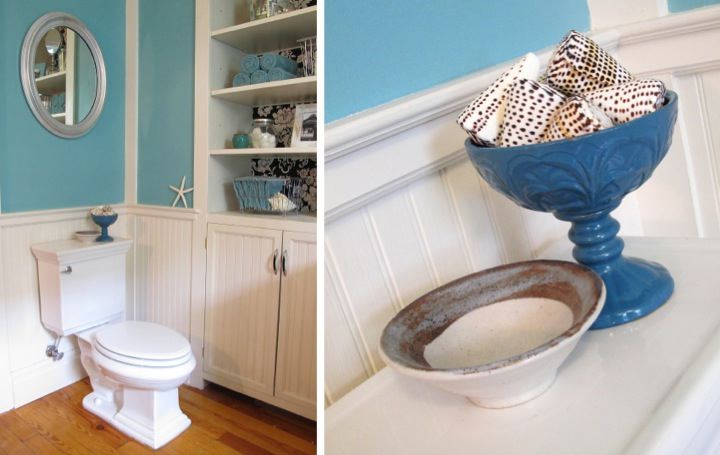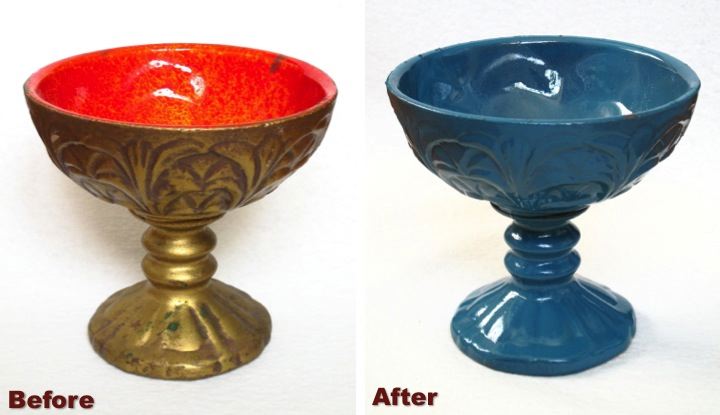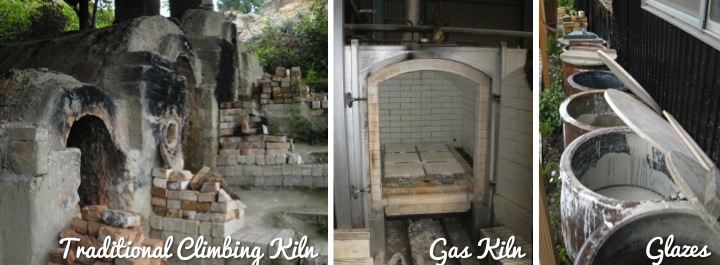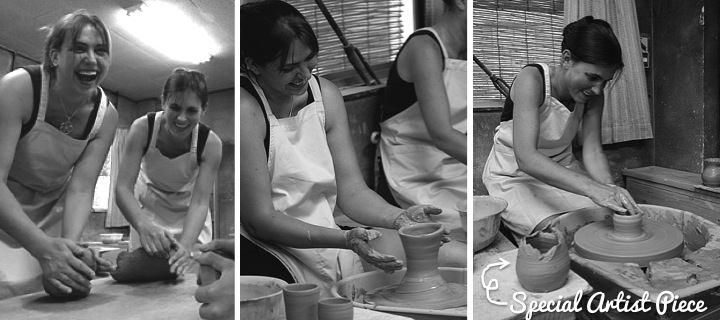
I've been trying to find just the right thing to put on the back of my toilet in my bathroom since it looks a little empty and plain. When I spotted this little chalice for two dollars at the Ann Arbor Reuse Center I knew it was a diamond in the rough.
The gold paint with the speckled red finish on the interior was absolutely hideous, but it had a cute shape and with a few coats of teal spray paint it was the perfect vessel to house a few shells and sit on the back of my toilet. I never stop being amazed at the power of a little spray paint.

As a fun aside, I made the little bowl sitting next to the chalice when I was living in Japan. Not too far away from where I lived is a small town called, Seto, which has been famous for its pottery for centuries. In fact the generic word for ceramics in Japanese is setomono (瀬戸物) which literally means Seto objects. I signed up with my friend, Trisha, to go to one of the pottery studios, Kasen, to learn about traditional pottery in Seto and try our hand at making some of our own pieces. 
The owner of the studio, Hiroshige Kato, is a twelfth generation potter using clay from the same place as his forefathers 400 years ago. He showed us the spot where he digs for clay as well as how his kilns work and the traditional glazes used in Seto.

Back inside the studio Kato-sensei taught us how to knead the clay and then form bowls and plates on the potter's wheel. After the introduction we had an hour to play around making our on creations. Trisha was a little overly ambitious on the wheel and when her clay got a little off center had a few bowl collapses. She decided to keep one of her collapsed pieces anyway deeming it art and as a result Kato-sensei started calling her "Special Artist." Trisha decided the nickname was a badge of honor and we had lots of fun joking about it.

The whole experience was an awesome time and a really great deal, too. The cost was ¥2000 (about $20 at the time) for the class and then ¥500 (about $5 at the time) for each piece that you decided you wanted to have fired. In the end I decided to have seven of my bowls fired and picked out different glazes for them. After a few weeks the bowls were available to pick up at the studio. I love having my pieces around my home because in addition to being pretty they remind of the fun time Trisha and I had making them.

If you ever find yourself in Aichi prefecture in Japan I would highly recommend arranging to take a class at Kasen. The price structure is a little different than when I did it and the exchange rate has also changed, but it is still very reasonable and it is a really great chance to have a hands on experience making Japanese pottery.
Have you recently spray painted anything totransform it? Have you ever tried your hand at throwing pots? Did it turn out well or did you make some "Special Artist" pieces?